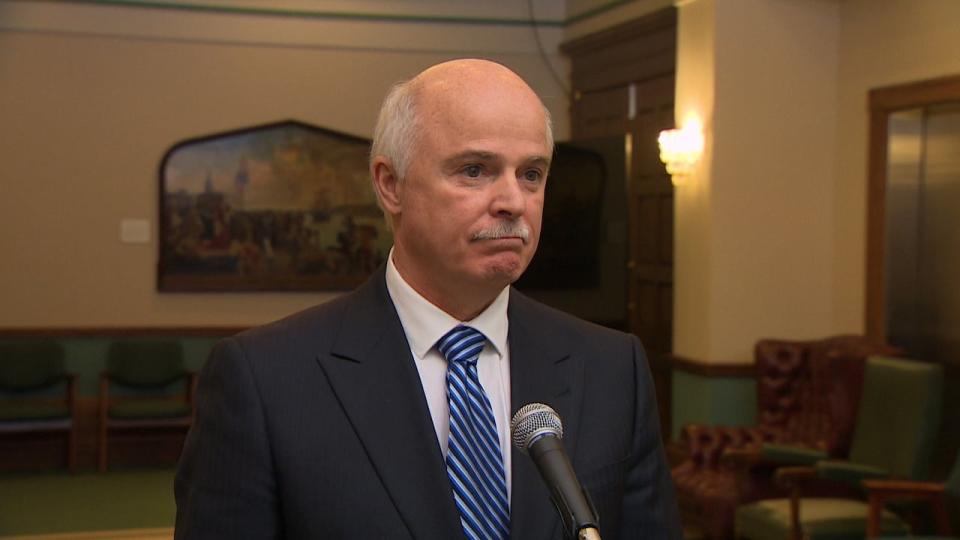NDP say policy problems — not lack of morgue space — real reason for storage problems


These cold storage units outside of the Health Sciences Centre in St. John's are used to hold unclaimed dead bodies. (Patrick Butler/Radio-Canada)
Opposition parties continued to needle the Liberal government over the long-term storage of bodies at the Health Sciences Centre in St. John's during question period at the House of Assembly on Thursday.
A day ago, a CBC News report revealed that there are nearly 30 bodies stored in freezer units in an alleyway on hospital property, most of which are going unclaimed due to the rising cost of living and the cost of funeral service fees. Those bodies are stored indefinitely.
Health Minister Tom Osborne said he learned of the freezers Wednesday morning from the CBC's reporting.
PC Leader Tony Wakeham took issue with Osborne's response, pointing to other examples — such as an expensive contract with a private Ontario-based nursing firm — where the minister has said he learned of a health-care issue through the media.
"Minister, you said did not know about the scandalous contract until Globe and Mail provided the article. You said you did not know about the bodies being stored in containers outside the Health Sciences [Centre] until you read it in a CBC article," Wakeham said.
"So I ask the minister, who's overseeing our health-care system, your department or the media?"
Osborne fired back, saying he's been talking about travel nurses for months and knew about the contract but didn't know about the $1.6 million spent on meal allowances, an air fryer or furniture.
The comptroller general is investigating the contract.
Part of the overcrowding problem with the Health Sciences Centre morgue is that it shares space with the chief medical examiner. That doctor can order cremations for the cases he handles, but the remainder are the health authority's responsibility. There's no legislation that allows the health department or health authority to cremate unclaimed remains.

Health Minister Tom Osborne says a new hospital or the new long-term storage facility at the Health Sciences Centre may include an upgraded office for the chief medical examiner, who raised the issue of inadequate space in 2017. (Mark Quinn/CBC)
PC MHA and Opposition House leader Barry Petten cited a 2017 report from the Office of the Chief Medical Examiner that outlined the need for expansion for a purpose-built facility and said the current facility is inadequate.
Osborne, who was speaker of the House of Assembly in 2017, said he hasn't read that report.
Newfoundland and Labrador Health Services says it will soon have a more permanent solution for the overflow of unburied remains at the Health Sciences Centre.
Osborne said it's "quite plausible" the design of a planned hospital to replace the aging St. Clare's will include a larger facility with more capacity.
But, he said, the health authority is looking for that solution at the Health Sciences Centre right now.
"I think the chief medical examiner obviously needs to have the space required to carry out their functions. The morgue obviously needs to be large enough to be able to carry out their functions," Osborne said.
"Looking forward, I know that the health authority are looking for a solution that will work for the chief medical examiner and the morgue."
NDP Leader Jim Dinn said that's still not the solution.
Residents on income support can get some funding to help pay for cremation and funeral services, but those rates haven't increased in nearly 20 years.
Dinn reiterated the importance of fixing the policy problems first.
"It's not about a storage issue. It's about the fact we have to look at why are bodies accumulating," he said.
"If it's about the lack of adequate financial assistance, if it's about the process that's complicated, if it's about the fact they don't have anything clear in legislation, address those and maybe what government would find is that they wouldn't need to build a storage facility."
Download our free CBC News app to sign up for push alerts for CBC Newfoundland and Labrador. Click here to visit our landing page.

 Yahoo News
Yahoo News 
